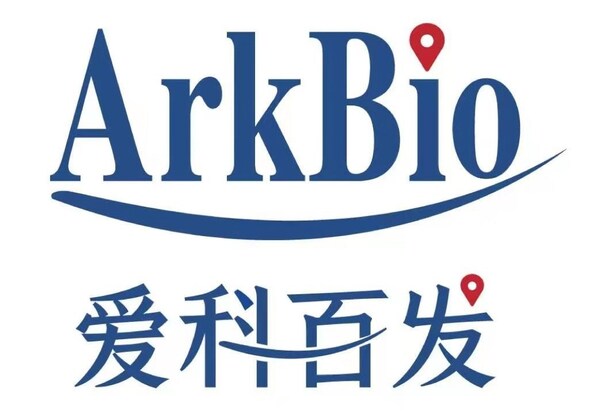 |
SHANGHAI, May 7, 2025 /PRNewswire/ — Shanghai Ark Biopharmaceutical Co., Ltd. (“ArkBio”) today announced positive top-line Phase II study results for its novel anti-fibrotic drug AK3280 in treatment of idiopathic pulmonary fibrosis (IPF). The study, led by Professor Huaping Dai of the Department of Pulmonary and Critical Care Medicine at China-Japan Friendship Hospital, Beijing, was conducted across 31 clinical sites in China.
Global Clinical Challenge: Unresolved Treatment Needs in IPF
Idiopathic Pulmonary Fibrosis (IPF) is a progressive, irreversible, and fatal interstitial lung disease characterized by fibrotic remodeling of lung tissue, ultimately leading to respiratory failure, with a median survival period of only 2–5 years after diagnosis. Current therapeutics including pirfenidone and nintedanib have been available for years, however, with limited efficacy, significant adverse effects and poor long-term tolerability, highlighting the urgent need for novel and more effective therapeutics.
Phase 2 Proof-of-Concept Study of AK3280, a New Generation Broadly Active Antifibrotic Drug
AK3280 is a new generation broadly active antifibrotic drug that is optimized for pharmacological and pharmacokinetic properties based on current IPF drugs. Preclinical data indicate that it exhibits enhanced anti-fibrotic activity and improved pharmacokinetic properties, without the gastrointestinal tolerability issues and other toxicities associated with current therapeutics. Previous Phase I studies have demonstrated its favorable safety, tolerability, and human pharmacokinetic profile.
The completed randomized, double-blind, placebo-controlled Phase II proof-of-concept study evaluated the safety, tolerability and clinical efficacy of AK3280 in China IPF patients. Participants were randomized to receive AK3280 (100/200/300/400 mg BID) or placebo for 24 weeks. Clinical efficacy endpoints included forced vital capacity of lung (FVC and %pFVC), diffusing capacity of lung for carbon monoxide (DLco), the 6-minute walk test (6MWT) and patient reported St. George’s Respiratory Questionnaire (SGRQ) scores. The high dose groups demonstrated FVC improvement from baseline, especially the 400 mg group which had the absolute FVC increased by 209.4 mL and a 6.4% adjusted %pFVC improvement from baseline, which is statistically significant compared to placebo (p=0.002 and 0.004, respectively). Other lung and respiratory functions have also got better. The drug exhibited a good safety and tolerability profile without the gastrointestinal intolerability issues associated with current IPF therapeutics.
Implications for Future IPF Therapeutics
This study with a rigorous multicenter, randomized, double-blind study design for 24 weeks followed by another 24 week’s open-label study represents the first phase 2 proof-of-concept study of AK3280 in fibrotic patient populations. These findings not only demonstrate AK3280’s potential to improve both lung function and respiratory outcome but also highlight its unique safety profile that may support long-term use, positioning it as a potential future standard-of-care therapy for IPF treatment.
Dr. Huaping Dai, principal investigator of the phase 2 study and professor at China-Japan Friendship Hospital, commented, “In the therapeutic landscape of IPF, the development of safer and more effective anti-fibrotic agents remains urgent. The most encouraging aspect of this Phase II study is AK3280’s positive signal in pulmonary function improvement. Unlike existing therapies that merely slow FVC decline, the high dosing groups of the phase 2 study achieved an impressive absolute increase in FVC over 24 weeks. In addition, we observed other respiratory and lung function improvements, indicating the substantial symptom relief and benefits to quality-of-life in the IPF patients. Notably, AK3280’s favorable tolerability across all dose levels is essential for the long-term management of IPF patients. This study provides novel scientific and medical perspectives, and we look forward to seeing this innovation to become a global standard treatment option in the near future.”
About AK3280
AK3280 is a potential next-generation broad-spectrum anti-fibrotic molecule optimized from the marketed drug. It modulates multiple pathways and biomarkers closely associated with the fibrotic process, including the expression of fibrosis-related genes and proteins induced by transforming growth factor-beta (TGF-β) and lysophosphatidic acid (LPA). AK3280 works by reducing fibroblast cellular proliferation and inhibiting the synthesis and accumulation of extracellular matrix. Compared to current therapies, AK3280 offers advantages in safety and tolerability, with potentially much improved clinical efficacy. The Phase II randomized, double-blind, placebo-controlled confirmatory clinical study has been completed, and preparations are underway to initiate the pivotal Phase III clinical study.
About ArkBio
ArkBio is a global biotech company focused on developing innovative therapies for respiratory, infectious, and pediatric diseases. Founded in 2014, it has built core technology platforms and a differentiated R&D pipeline through in-house R&D efforts and external collaboration. Key drug assets include ziresovir, the first direct-acting RSV antiviral with positive pivotal phase III results, and AK0901, an FDA-approved pediatric ADHD therapeutic drug. ArkBio has established strategic partnerships with several multinational pharmaceutical companies and academic institutes, including Roche, Genentech, the Scripps Research Institute, the Institute of Microbiology of Chinese Academy of Sciences, domestic and international biotechnology companies, as well as venture capital institutions.
For more information about the company, please visit our website: www.arkbiosciences.com
Investor Inquiries: [email protected]



















